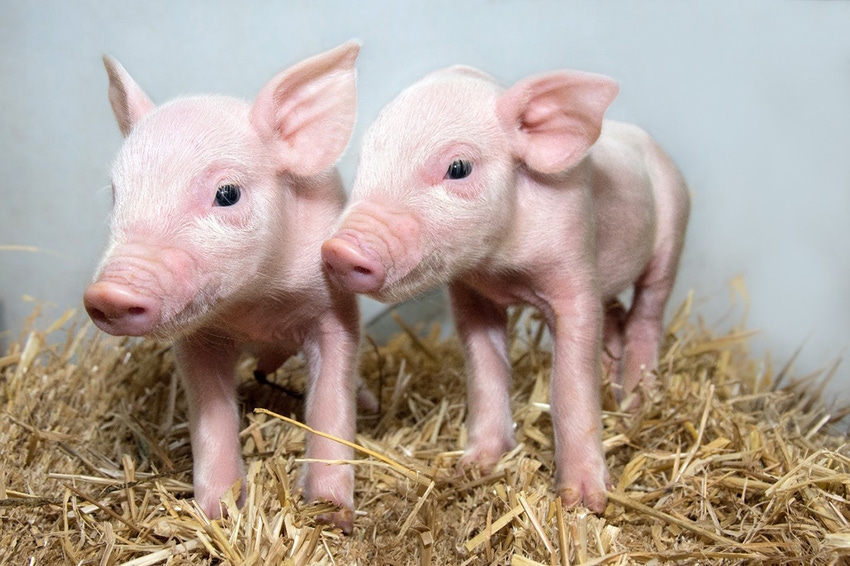DNA research offers insights into pig muscle development
Variations suggest a difference in how DNA is regulated – which in turn governs muscle growth – between large and small piglets.
January 18, 2022

Analysis of pig DNA has offered insights into muscle growth, in a development that could provide tools to help predict growth in piglets and support pig breeding programs. Researchers say findings from the study could help provide information about the genetic code to predict muscle growth in developing pigs, to ultimately produce litters with fewer small piglets.
Researchers from the Roslin Institute and the Centre for Tropical Livestock Genetics and Health sought to find and examine regions of DNA that regulate muscle development in piglets. The team used a technique to study DNA in frozen tissue. They applied this to samples from muscle in piglets at various stages of development, to pinpoint regions of DNA that control activity in genes linked to muscle growth, and to study activity in these genes.
Variations in regions of DNA were observed between small and large piglets. These variations suggest a difference in how DNA is regulated – which in turn governs muscle growth – between large and small piglets.
Researchers hope to explore their data further to identify variations in the genetic code of pigs that are linked to growth, and better understand how these differences regulate the activity of key genes involved in muscle development, to inform pig breeding programs.
The team's method of analysis using frozen tissue could be applied to investigate how the genetic code of livestock controls their characteristics. As the method can be used on samples from frozen tissue banks this can help limit the numbers of animals used for research. The improved knowledge of pigs' genetic code will also underpin research into other areas of their development, health and welfare.
"Pigs are widely farmed and it is important that we understand their biology, including detailed knowledge of their genetic code. Our findings help to improve understanding of the pig genome and will support further research to aid breeding selection programs," says Dr. Emily Clark with the Roslin Institute.
The research was published in G3: Genes, Genomes, Genetics.
The Roslin Institute receives strategic investment funding from the Biotechnology and Biological Sciences Research Council and it is part of the University of Edinburgh's Royal (Dick) School of Veterinary Studies.
Source: The Roslin Institute, which is solely responsible for the information provided, and wholly owns the information. Informa Business Media and all its subsidiaries are not responsible for any of the content contained in this information asset. The opinions of this writer are not necessarily those of Farm Progress/Informa.
You May Also Like



